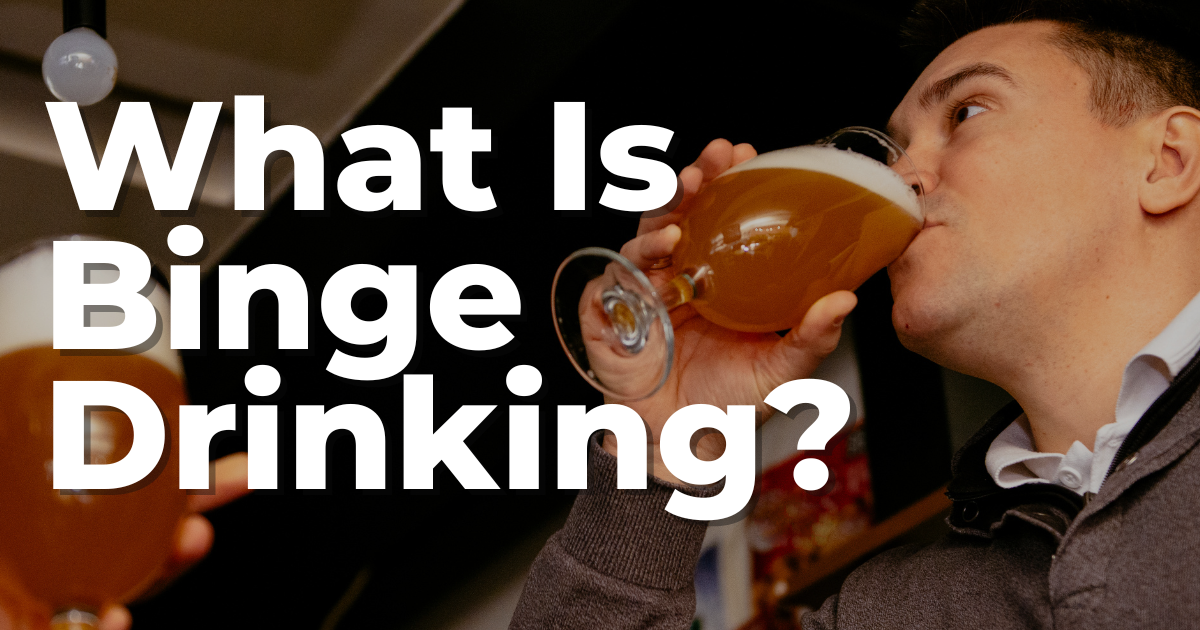What Is Binge Drinking?
Alcohol is the most-used substance in the United States today. It also has the privilege of being the most socially acceptable and easily accessible substance to citizens. In 2019, the National Institute on Alcohol Abuse and Alcoholism reported (NIAAA) that 69.5% of American adults reported that they drank in the past year at least once. With wide availability, this substance brings with it a wide variety of social ills and negative externalities, like excessive alcohol use, which includes binge drinking and heavy drinking.
How Many Drinks is Considered Binge Drinking?
The Centers for Disease Control and Prevention (CDC) defines binge drinking as the consumption of five or more drinks for men or four or more drinks for women during a single instance. Excessive drinking is any drinking that can be defined as binge or heavy drinking. Heavy drinking, the highest form of alcohol consumption, is defined as the consumption of 15 drinks or more per week for men and eight drinks or more per week for women. In 2010, the CDC reported that excessive alcohol use is responsible for more than 140,000 deaths in the United States each year and $249 billion in economic costs. These costs place the burden of excessive alcohol consumption on taxpayers and society in many ways, including healthcare consumption, excess deaths, and social costs.
How Bad Is Binge Drinking in the U.S.?
Binge drinking is a serious problem in the United States. It represents the most common type of problematic drinking pattern among those who drink alcohol around the country. Over 90% of those who drink excessively report binge drinking as the most common form of imbibing. The CDC reports that one in six U.S. adults binge drink, with 25% doing so at least weekly.
Read more about how some institutions, like the University of Tennessee in Knoxville is combatting excessive and underage drinking here.
Is Getting Drunk the Same as Binge Drinking?
Despite binge drinking being a red flag (it is associated with an increased risk for alcohol use disorder), most people who binge drink do not have a severe alcohol use disorder. Getting drunk isn’t necessarily indicative of binge drinking activities, but consistently being under the influence enough to get that way can have long-term health consequences. Regardless of whether binge drinking is coupled with an alcohol use disorder or not, these statistics present a very dangerous national drinking culture—one full of those who make decisions contrary to their health quite often.
Risks of Binge Drinking
In 2019, NIAAA reported that of the 85,688 liver disease deaths among individuals ages 12 and older, 43.1% involved alcohol. They also reported that from 2010 to 2016, alcohol-related liver disease was the primary cause of up to 30% of liver transplant operations in the U.S., replacing hepatitis C virus infection as the leading cause of liver transplantation due to chronic liver disease. Research has shown that people who misuse alcohol have a greater risk of liver disease, heart disease, depression, stroke, and stomach bleeding, as well as cancers of the oral cavity, esophagus, larynx, pharynx, liver, colon, and rectum. Individuals who binge drink consistently may also have problems managing conditions such as diabetes, high blood pressure, pain, and sleep disorders. They may increase their likelihood of unsafe sexual behavior.
Who Is Most At-Risk?
In the US, binge drinking happens the most with those under 30. U.S. adult binge drinkers consume about 17.5 billion total binge drinks annually, or about 470 binge drinks/binge drinker. More than twice as many men binge drink as women, with four out of every five binge drinks being consumed by males. Most of those under 21 who report drinking alcohol also report binging. This figure is as high as 60% in college students. While binge drinking is most prevalent in households with incomes of $75,000 or more and with higher educational levels, binge drinkers with lower educational levels and incomes consumed more binge drinks.
Learn More
To learn more about how Landmark Recovery treats alcohol use disorders, give our dedicated admissions team a call at 888-448-0302. We specialize in treating alcohol use disorders through the entire process of recovery, from detox to after care to alumni services. Our mission is to save a million lives by the end of the century, starting with those in our very own backyards.

Choose Recovery Over Addiction
We're here 24/7 to help you get the care you need to live life on your terms, without drugs or alcohol. Talk to our recovery specialists today and learn about our integrated treatment programs.




